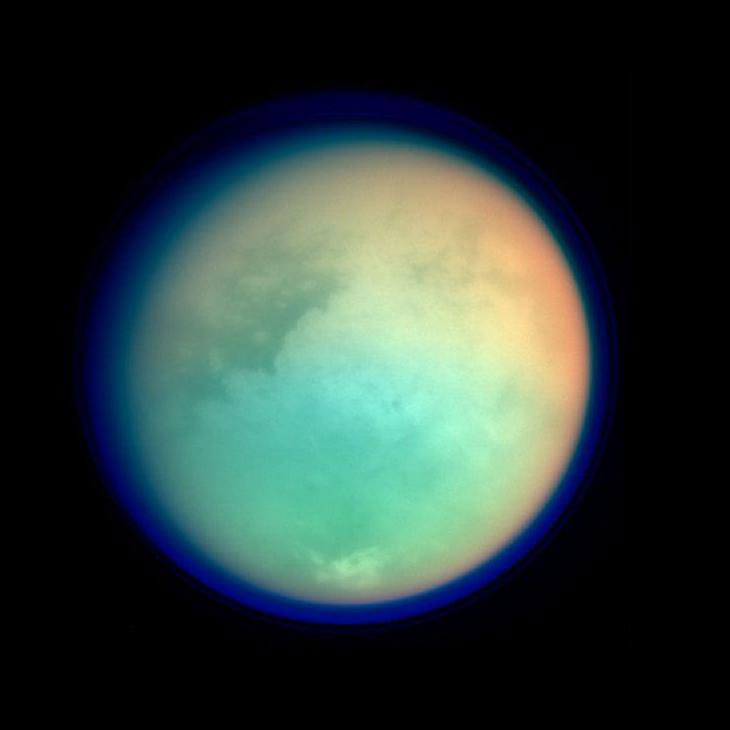Hope to find extraterrestrial life on Saturn's Titan moon
Scientists and published a study showing Saturn's Titan moon is one of the ideal places to form life in our solar system.
Saturn's largest moon - Titan - is one of the places where flower scientists put much hope into finding the life of aliens in our solar system. Researchers say Titan's surface has many chemicals suitable for the beginning of life, although a very important element is water.
According to Gizmodo, Saturn's Titan moon is bigger than Mercury. It is also known as the biggest moon among Saturn's 60 moons. Titan's surface is now suspended by rivers, lakes and rainfall. Within Saturn's scope there is an ocean of methane with an active cycle equivalent to water on Earth, which makes scientists consider Titan to be one of the most ideal places to appear. live outside the Earth.

Topography and structure on the surface of Titan has the potential to contain pre-life chemicals.
In a study just published in the Proceedings of the Academy of Sciences on July 4, Martin Rahm, a postdoctoral researcher and lead author of this work, said the terrain and structure Titan's surface has the potential to contain pre-life chemicals. So scientists are focusing on finding evidence of the existence of these substances.
Using models on computers, researchers from Cornell University discovered that a chemical on the surface of Titan is called hydrogen cyanide that is capable of participating in long chain formation or polymers. , one of them is called polyimin . Although the atmosphere is quite cold in Titan, the chemical can still stimulate chemical reactions when absorbing solar energy through the moon's thick clouds.
"Polyimin can exist in the form of different structures and it can do some remarkable things at low temperatures, especially with Titan climatic conditions" - Rahm, who works in the laboratory by Roald Hoffmann, winner of the 1981 Nobel Prize in chemistry and Professor Frank HT Rhodes of Humane Letters Emeritus.
Rahm and other scientists in the same study agreed with Hoffmann's view.
In a press release, Rahm also said that they need to continue analyzing the results to find out how chemicals will change over time. He also added: "If observations in the future can prove pre-life substances present on places like Titan, it will be a major breakthrough. This article (article published in Century The weak Academy of Sciences indicates a prerequisite for the process that leads to a form of life on Titan but this is only the first step ".
- See the 'foggy sunset' on Saturn's moon
- Find the river on Saturn's moon
- Super dust storms show signs of life on Saturn moon
- The Hang Nga 3 probe failed to find water on the Moon
- The new discovery shook the hypothesis of life on Titan
- New computer model about Moon Titan
- Saturn's moon wave is only 1 centimeter tall
- Titan moon can nourish life
- Life may exist on Saturn's moon
- Detecting cell membrane material on Titan moon
- He tried to find extraterrestrial life
- NASA finds 'an alien Earth'
 Van Allen's belt and evidence that the Apollo 11 mission to the Moon was myth
Van Allen's belt and evidence that the Apollo 11 mission to the Moon was myth The levels of civilization in the universe (Kardashev scale)
The levels of civilization in the universe (Kardashev scale) Today Mars, the sun and the Earth are aligned
Today Mars, the sun and the Earth are aligned The Amazon owner announced a secret plan to build a space base for thousands of people
The Amazon owner announced a secret plan to build a space base for thousands of people